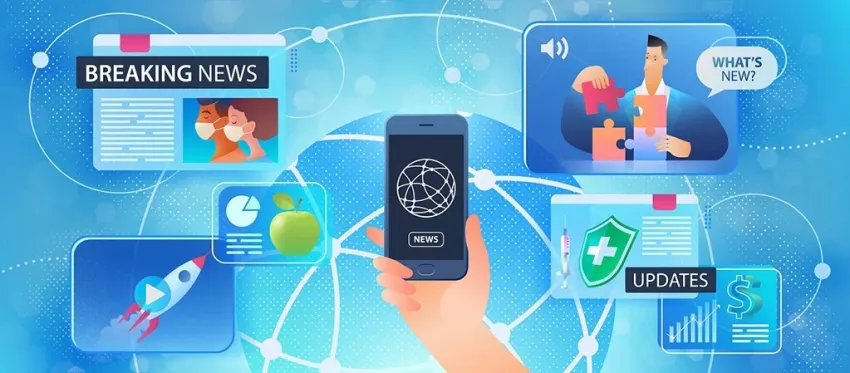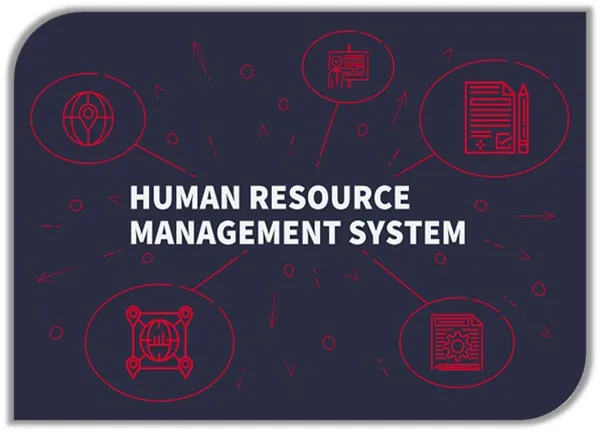
Menu

Menu

Keeping up to date on the latest labor laws and regulations, HR trends, and global HR news is a challenge that many HR professionals face. In an area as broad in scope as HR, the amount of information and the volume of sources available can be overwhelming. Moreover, in addition to maintaining up-to-date knowledge, HR professionals carry the significant responsibility of interpreting and applying laws and regulations fairly and equitably. Consequently, they must remain conscious of the fact that every decision made may set a precedent, which can have a long-lasting impact on the organization.
Furthermore, in the UAE, there is an additional layer of complexity due to the necessity of considering differing laws for Emirati nationals and the diverse expatriate workforce. Most individuals have compiled a personal list of sites and sources they have found useful. Therefore, in this article, we aim not only to enhance your list but also to provide valuable links to resources that will help you stay informed and connected with other HR professionals worldwide.


The administrative burden of processing monthly payroll can lead to data entry errors or omissions of critical information. To avoid these issues, training multiple employees to handle payroll processing is essential. This training allows them sufficient time to stay updated on the latest changes in laws and regulations. Alternatively, you might consider outsourcing your payroll to an external service provider. By doing so, you ensure that trained resources are always available to manage your payroll efficiently.
Payroll processing relies on various employee data sources, such as core employee information, time and attendance records, and benefits and claims. However, when these data sources exist in different IT systems, it creates a significant challenge for those responsible for collating the information. Consequently, they face headaches while trying to gather the necessary data to calculate payroll accurately.

One effective solution is to implement a Human Resource Management System (HRMS) that consolidates all employee data in one central location. By doing so, an HRMS significantly reduces the payroll burden. Furthermore, it enhances security, provides audit trails, and improves reporting options. Additionally, it allows employees easier access to their personal information, fostering transparency and engagement.
A challenging aspect of payroll processing is accurately managing salary deductions and additions, which can vary each month. Consequently, keeping track of when changes are needed and for whom can often lead to errors and delays. Furthermore, these deductions and additions are time-sensitive and rely on supplementary documents or information, such as claim forms, overtime logs, and leave applications. Thus, establishing a systematic approach to monitor these changes is essential for ensuring payroll accuracy.

Associated documents typically require verification and approvals before processing, which can contribute to delays. However, an HRMS can alleviate this issue. It offers automated approval workflows, which streamline the process. Additionally, it connects data and processes, ensuring consistency. Moreover, it allows for pre-programmed deductions and additions based on specific dates or criteria. As a result, the HRMS enhances efficiency and reduces potential delays in payroll processing.
A core input to salaries is the employee time and attendance log. Collecting, storing, and retrieving this data for calculations can be difficult. Moreover, determining working hours has become even more challenging due to remote work and the increasing tendency for employees to engage from different locations simultaneously. Therefore, implementing a reliable attendance tracking system is essential. This system will provide accurate and readily accessible data, simplifying the task of payroll processing.

Organizations commonly utilize a diverse range of worker types to meet their operational needs. For instance, these workers may include full-time and part-time salaried employees with benefits, contract staff on various project rates, freelancers paid hourly, or even vendor resources. Consequently, this wide variety of worker types can complicate payroll processes, as each classification requires different payment calculations. Therefore, one effective solution is to implement an HRMS that can handle predefined worker classifications. By doing so, this system automates differentiated payments and any associated variations, ultimately streamlining the entire payroll process.

Keeping up to date on the latest labor laws, trends, and news in HR is crucial for professionals in the field. However, navigating this landscape can be daunting due to the sheer volume of information available. Therefore, it is essential to adopt proactive strategies to remain informed. One effective approach is to regularly follow reputable HR news websites, subscribe to industry newsletters, and participate in relevant webinars and conferences. By doing so, HR professionals can gain insights into emerging trends and best practices that can enhance their expertise.
Networking plays a vital role in staying updated on HR developments. By engaging with other HR professionals, you can exchange knowledge, share experiences, and learn about new resources. Consider joining local or global HR associations, attending industry events, or participating in online forums. These connections can provide valuable insights into how other organizations are addressing similar challenges and adapting to changes in the HR landscape.
Furthermore, continuous learning is essential in the ever-evolving field of HR. Pursuing relevant certifications, attending workshops, or enrolling in online courses can significantly enhance your knowledge and skills. Additionally, staying informed about the latest HR technologies can empower professionals to leverage new tools that streamline processes and improve efficiency. Ultimately, investing in professional development not only benefits individual careers but also contributes to the overall success of the organization.
In today’s digital age, leveraging technology is essential for managing HR information effectively. Implementing advanced tools such as HR analytics software can help organizations track changes in regulations and trends. Additionally, using social media platforms can serve as a real-time information source for the latest HR news and insights. By utilizing these technological advancements, HR professionals can make informed decisions and stay ahead of the curve.
Moreover, compliance training is a critical component of staying updated on labor laws and regulations. Organizations must prioritize regular training sessions for HR staff to ensure they understand the latest legal requirements. This proactive approach not only mitigates risks but also reinforces a culture of compliance within the organization. Consequently, well-informed HR teams can confidently navigate complex legal landscapes, ensuring that all practices align with current regulations.
Lastly, adopting a collaborative approach to addressing HR challenges can yield better results. Engaging with cross-functional teams allows HR professionals to gain diverse perspectives on issues such as employee engagement, talent acquisition, and retention strategies. By working together, organizations can develop comprehensive solutions that align with both business objectives and employee needs. Therefore, fostering collaboration within the workplace is crucial for creating an adaptive and resilient HR function.
As organizations expand their reach globally, understanding international HR practices becomes increasingly important. Therefore, to stay informed, HR professionals should actively explore global HR news sources and case studies that highlight diverse approaches to human resource management. Moreover, by learning about different cultural norms and legal requirements in various countries, HR can gain valuable insights that benefit multinational organizations. Ultimately, by embracing a global perspective, HR professionals can develop strategies that are sensitive to cultural differences and foster a more inclusive workplace.
In addition to legal and regulatory changes, social trends significantly impact HR practices. Consequently, issues such as employee mental health, work-life balance, and diversity, equity, and inclusion (DEI) have gained prominence in recent years. To remain informed, HR professionals should regularly assess societal trends and their implications for the workplace. This can involve, for instance, following thought leaders on social media, subscribing to relevant blogs, or actively participating in discussions that focus on these critical issues. By staying attuned to social changes, HR can proactively address employee needs and enhance organizational culture.
Furthermore, data analytics is revolutionizing the HR landscape by providing insights that drive informed decision-making. Therefore, HR professionals should familiarize themselves with data analysis tools that can help track employee engagement, performance metrics, and retention rates. By analyzing this data, HR can identify trends and patterns that inform recruitment strategies, employee development initiatives, and retention efforts. Consequently, leveraging data empowers HR professionals to make evidence-based decisions that significantly contribute to organizational success.
Moreover, conducting or engaging in industry research is another valuable method for staying informed about HR trends. Collaborating with academic institutions or research organizations can provide access to studies that explore emerging HR practices and their effectiveness. Additionally, participating in surveys and research projects can help HR professionals contribute to the field while gaining insights into how their organization compares to industry benchmarks. By staying engaged with research initiatives, HR can effectively drive innovation and implement best practices.
Finally, fostering a culture of knowledge sharing within the organization can greatly enhance HR’s ability to stay informed. By encouraging employees to share their experiences, insights, and expertise, organizations can create a collaborative environment where learning is prioritized. Implementing regular knowledge-sharing sessions or establishing internal platforms for discussions can facilitate this exchange. As a result, organizations can benefit from diverse perspectives and ideas, ultimately leading to more innovative HR solutions that align with current trends and challenges.
In addition, building strategic partnerships within and outside the organization is crucial for effective HR management. By collaborating with other departments, such as finance, marketing, and operations, HR can align its strategies with overall business objectives. Consequently, this collaboration leads to more cohesive decision-making processes and enhances the effectiveness of HR initiatives. Furthermore, forming partnerships with external organizations, such as educational institutions and industry associations, can provide HR professionals with access to valuable resources, training programs, and best practices. As a result, these partnerships not only broaden HR’s knowledge base but also contribute to the organization’s competitive advantage in the marketplace.
Moreover, continuous learning and professional development are essential for HR professionals to remain effective in their roles. Therefore, investing time in attending workshops, webinars, and conferences can significantly enhance their skill sets and knowledge. Additionally, pursuing certifications in specialized areas of HR, such as talent management or employee relations, can provide deeper insights and increase credibility within the field. As HR professionals commit to ongoing education, they not only improve their own capabilities but also position their organizations to adapt to evolving HR trends and challenges. Ultimately, fostering a culture of continuous learning within the HR team will lead to enhanced performance and a more agile response to changes in the workforce.
In summary, you can significantly alleviate the worry and headache of payroll processing by either implementing a central HRMS or outsourcing the responsibility to an external service provider. By choosing to adopt an HRMS, you streamline various payroll tasks, thereby enhancing efficiency. Alternatively, outsourcing allows an expert team to take care of all these issues on your behalf, ensuring compliance and accuracy. Ultimately, both options can lead to a more manageable and stress-free payroll experience.
Why not take a look at how our HRBluSky HRMS can help you eradicate these common and costly errors and make your payroll simpler to administer.
Alignment
Article
Audit
Automation
Benefits
Candidate
Communication
Compliance
Digitalisation
Digital Technology
Diversity
Emirates Id Application
Employee Experience
ESS
Feedback
Health and Safety
HRMS
HR Strategy
HR System UAE
Human Resource Management
Human Resource Management Systems
Job Roles
Learning and Development
Onboarding
Outsource
Payroll
Payroll Management System
Payroll Processing
Performance
Performance Management
Personalisation
Recruit
Recruiting
Recruitment
Remote Working
Rewards
Security
Service Providers
Skills
Smart
Survey
Virtual
Visa Cancellation
Work Environment
Workforce
© 2026 Pruvity HR Solutions Pvt Ltd, Madurai, India